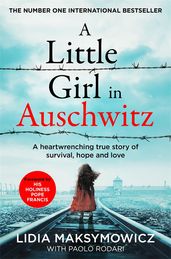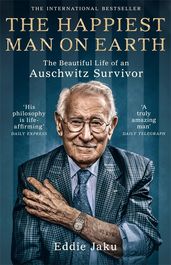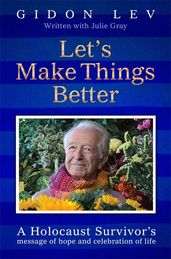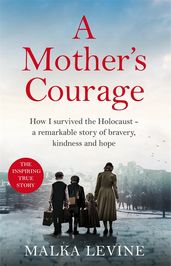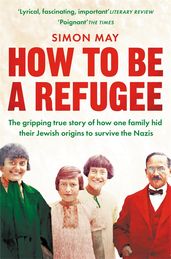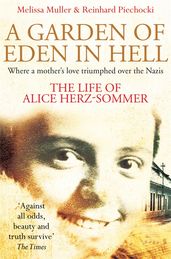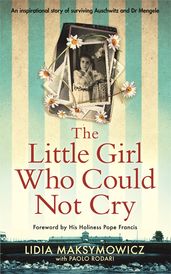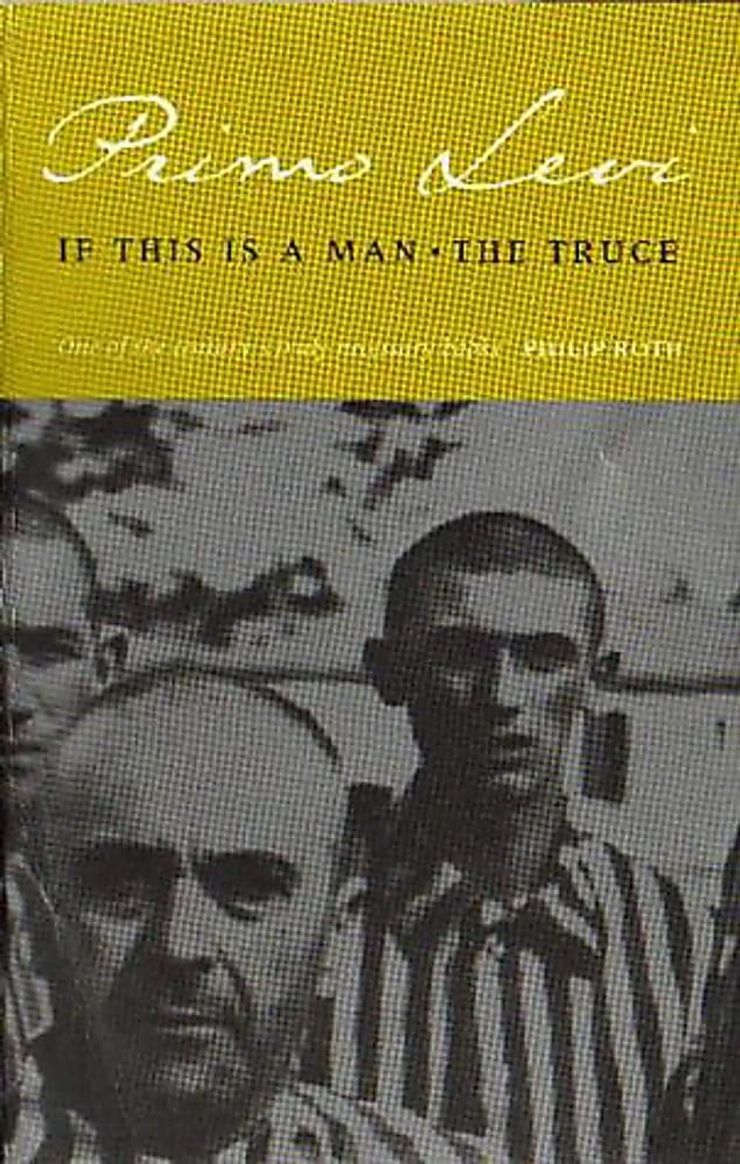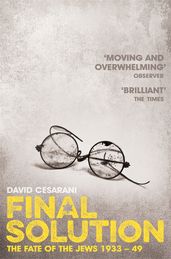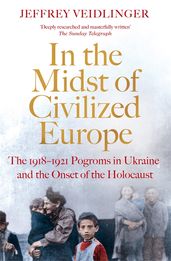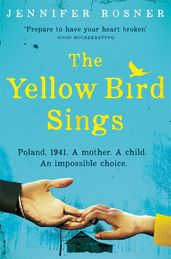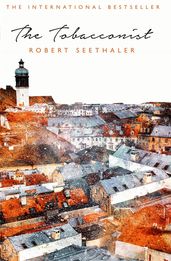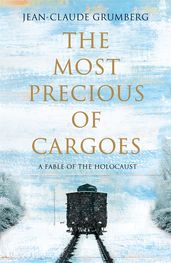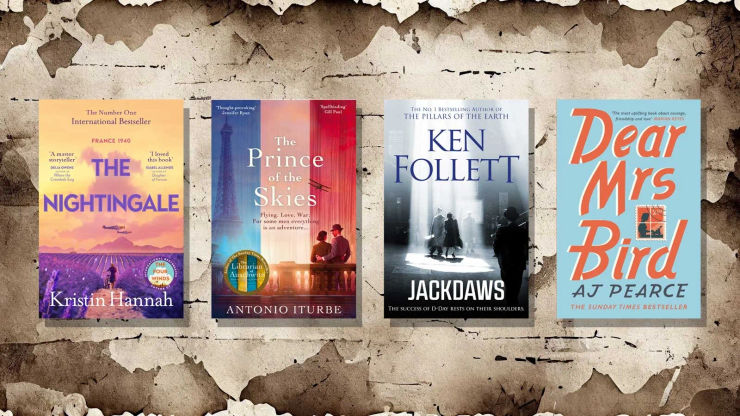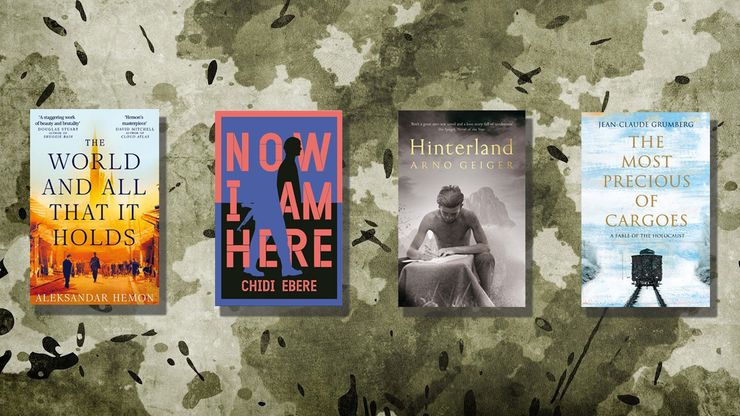Eighteen essential books about the Holocaust
Our pick of the most informative books about the Holocaust to help you learn, reflect and remember.
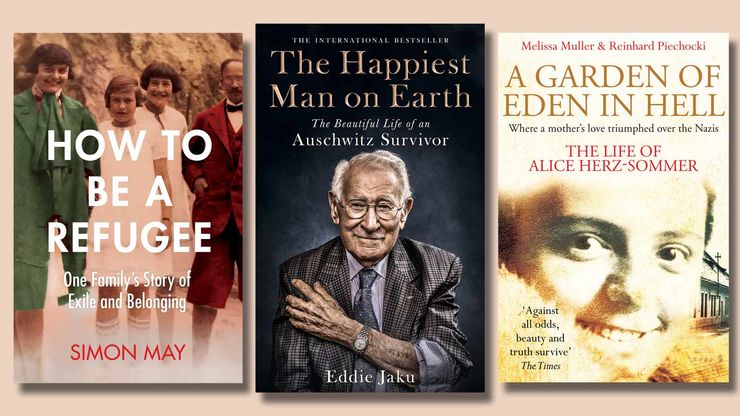
Here, Journalist Arielle Tchiprout reflects on the importance of remembering the Holocaust, and shares an essential reading list to educate readers on one of the darkest periods of human history.
It’s easy enough to think that the Holocaust is simply a relic of the past; that it belongs only in history textbooks or in museum displays. Yet, the devastation and destruction it caused lives on today, which is why remembering it is so important.
Of course, you’ll already know what the Holocaust was – the genocide carried out by the Nazis during World War II, in which six million Jews were murdered – but you won’t necessarily know the myriad stories behind those numbers, and the stories of millions more people who managed to survive. Like my grandfather, who ran away from a forced labour camp in Bulgaria in 1945. He kept the yellow star he was forced to wear until he passed away in Israel in his nineties. Or my cousin’s grandparents, who managed to flee Vienna for the United States, after they lost their basic human rights in the place they had called home. Or my colleague, who has no extended family past her grandparents, because they all perished in Auschwitz. It’s hard to find a Jewish person living in Britain today who doesn’t have their own story to tell; often, like mine, it’s a story of luck that their family tree still exists at all. For many second- or third-generation survivors, the trauma lives on inside our hearts.
So although the Holocaust is history, it’s really not so distant. In fact, some survivors are still alive to tell the tale – memoirists like Dr Edith Eger and Eddie Jaku can still recall the horrors with burning clarity. And with the rising tide of antisemitism and fascism around the world, it feels more pertinent than ever to remember those whose lives were stolen (both physically and mentally), to ensure such hatred never seeps so deeply into society again.
In my opinion, the best way to remember is to immerse yourself in the stories of people who were there. People with hopes and dreams, anxieties and insecurities, humour and resilience; people who loved, were loved and are still loved by those who are living today. Read on for my pick of the best true-story accounts, to learn about the Holocaust.
The best memoirs and biographies for learning about the Holocaust
A Little Girl in Auschwitz
by Lidia Maksymowicz
The extraordinary story of Lidia Maksymowicz, who survived at the hands of Auschwitz's 'Angel of Death' Dr Mengele, A Little Girl in Auschwitz has touched hearts around the world. Brought to the infamous Nazi death camp with her mother when she was just three years old, Lidia experienced unimaginable horror daily, until the camp was liberated in 1945. Through her own words, Lidia tells her moving true story and shares how her experiences have shaped the rest of her life.
The Happiest Man on Earth
by Eddie Jaku
Eddie Jaku shares an unforgettable testament to the strength of the human spirit. A proud German who was arrested and imprisoned in Nazi concentration camps, Eddie endured the horrors of Buchenwald, Auschwitz, and a brutal death march – losing family, friends, and his home along the way. Yet through unimaginable adversity, Eddie made an extraordinary vow: to smile every day and embrace kindness and joy as his life’s purpose. This moving memoir captures Eddie’s resilient optimism, revealing his profound belief that life can be beautiful, no matter the circumstances.
Let's Make Things Better
by Gidon Lev
Let’s Make Things Better shares the extraordinary resilience and unshakable optimism of Gidon Lev, an 89-year-old Holocaust survivor whose life stands as a testament to the enduring power of hope. Imprisoned at Theresienstadt as a child and liberated at ten, Gidon lost dozens of family members yet emerged with a profound, steadfast belief in humanity's capacity for good. Across nearly a century, he’s cultivated a life philosophy centered on the small, purposeful steps anyone can take to make a difference, regardless of circumstance.
Lily's Promise
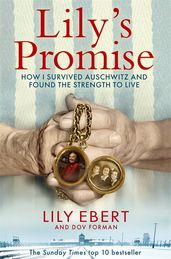
This is the moving story of Holocaust survivor Lily Ebert, written with her great-grandson Dov. When Lily was liberated at the end of the Second World War, a Jewish-American soldier handed her a banknote with the words ‘the start to a new life, good luck and happiness!’ written on it. Decades later, when Lily was 96, Dov decided to track down the family of that soldier. Lily finally told her life story to the world, from her childhood in Hungary to the deaths of her family members in Auschwitz to her new life in Israel and then London, fulfilling the promise she made to her 16-year-old self to share the horrors of the holocaust.
A Mother's Courage
by Malka Levine
A powerful and moving tribute to a determined and resourceful woman who refused to give up hope so long as her children needed her. Malka was two when the Nazi invaders forced her family into the Jewish ghetto in Volodymyr-Volynskyi, a small city in present-day Ukraine. Of the 25,000 Jews in the city in 1939, only 30 would survive. Rivka kept Malka and her two older brothers alive through eighteen terrifying months, as the Nazis systematically killed the inhabitants of the ghetto. In the midst of the inhumanity, a few people risked their lives to help. A Mother’s Courage is Malka’s chance at long last to thank not only her brave mum but all the heroes who opened their hearts to her and her family.
How to Be a Refugee
by Simon May
While we often hear stories of those who escaped or perished during the Holocaust, Simon May tells a very different, much rarer story: of those who refused to believe they were Jewish. May tells the gripping story of his mother and his two aunts, whose trajectories included converting to Catholicism and securing ‘Aryan’ status with high-ranking help in the Nazi regime. After the war, May’s mother continued to conceal her identity, leading him on an illuminating quest into what constitutes belonging, and home.
A Garden of Eden in Hell: The Life of Alice Herz-Sommer
by Melissa Muller
This is the story of Alice Herz-Sommer, who was one of the best-known pianists in Prague. When she, her husband and their six-year-old son were deported to the concentration camp Theresienstadt, music was her salvation, and her concerts gave her fellow prisoners hope in a world of pain and death.
The Choice
by Edith Eger

Hungarian-born Edie was just like any other teenager – she dreamed of being a ballerina, and she was head-over-heels in love with her first boyfriend. Until, aged sixteen, she was sent to Auschwitz, where she watched her mother enter the gas chambers, and she was forced to dance for notorious Nazi Dr Josef Mengele. Edie went on to become an acclaimed clinical psychologist, and this is her incredible story of resilience and healing.
Man's Search For Meaning
by Viktor E Frankl
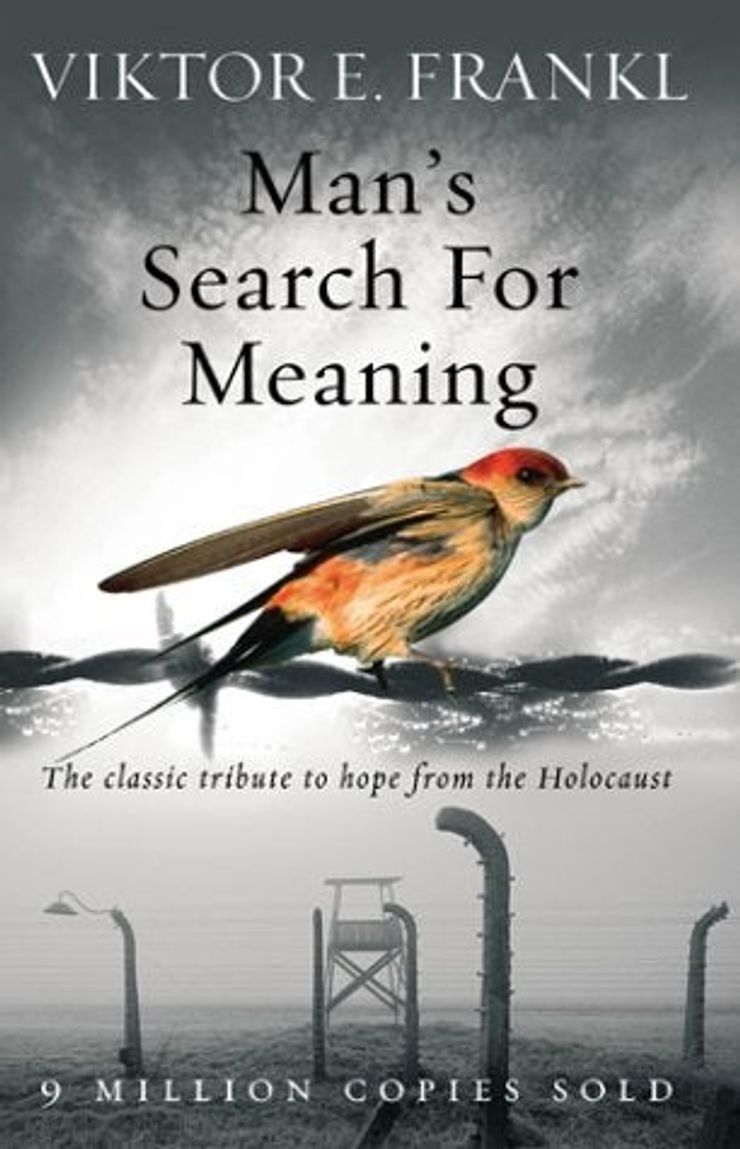
A prominent Viennese psychiatrist before the war, Viktor Frankl was able to observe the way he and others in Auschwitz coped (or didn’t) with the experience. He came to believe that humans’ deepest desire is to search for meaning and purpose. This outstanding book (which has sold 16 million copies) transcends its time and place; it’s an exploration of what it truly means to live.
The Tattooist of Auschwitz
by Heather Morris
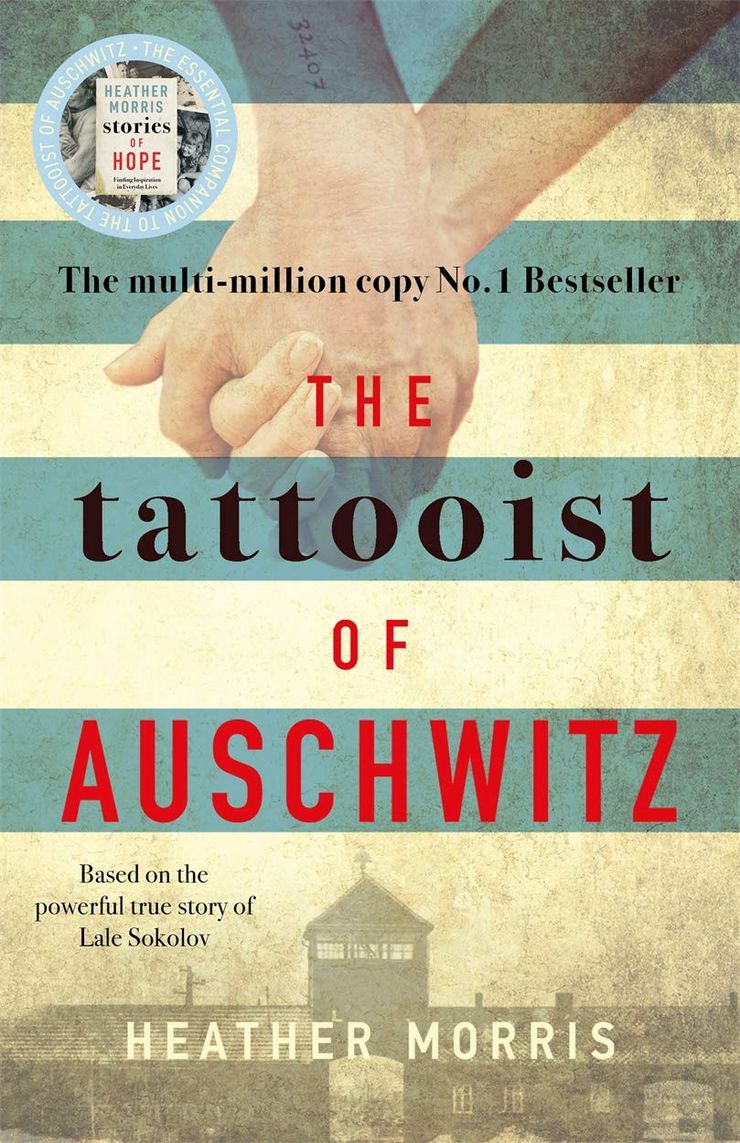
This unforgettable book has sold five million copies, and for good reason. Through this fictional account, Heather Morris tells the beautiful true story of Lale Sokolov, whose job in Auschwitz was to tattoo prisoners’ arms. Waiting in line to be tattooed was a young woman named Gita. For Lale it was love at first sight, and he became determined to not only survive himself but to ensure she did too.
The Diary of a Young Girl
by Anne Frank
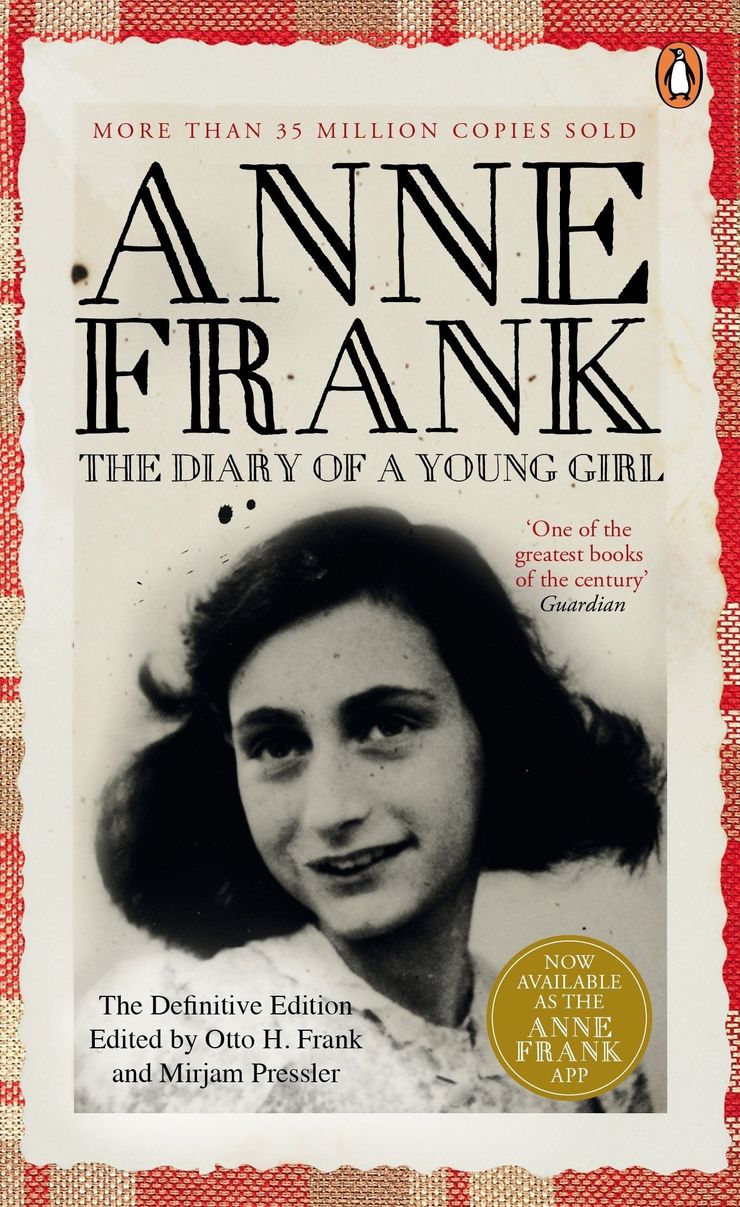
Anne Frank’s diary has become one of the most famous books about the Holocaust, and it remains one of the most introspective, enlightening accounts of what it was like to be a Jewish child living in hiding. It captures the daily realities of life in confinement, from moments of fear and tension to reflections on love, dreams, and identity. Her words, filled with insight and empathy beyond her years, have touched generations, making her a lasting symbol of resilience.
The Little Girl Who Could Not Cry
by Lidia Maksymowicz
Lidia Maksymowicz was just three years old when she arrived in Auschwitz-Birkenau with her family. Once there, Lidia was picked by Dr Josef Mengele for his experiments and survived eighteen months of unimaginable trauma, while her mother risked her life to secretly visit her. By the time Birkenau was liberated her family had disappeared, and Lidia was adopted by a loving family, but in 1962, she discovered that her birth parents were still alive and she faced an agonising choice. In this powerful, moving and ultimately hopeful autobiography, Lidia comes to terms with the past and finds the strength to share her story, saying: ‘Hate only brings more hate. Love, on the other hand, has the power to redeem.’
If This is a Man
by Primo Levi
Primo Levi, an Italian chemist, was arrested as a member of the anti-fascist resistance during the war and deported to Auschwitz. His impassioned attempt to understand the 'rationale' behind the concentration camps was completed shortly before his death in 1987.
'The death of Primo Levi robs Italy of one of its finest writers . . . One of the few survivors of the Holocaust to speak of his experiences with a gentle voice.' –The Guardian
Further non-fiction about the Holocaust
Final Solution
by David Cesarani
This is an intelligent and thought-provoking short history by one of this generation’s leading Jewish and Holocaust scholars. David Cesarani adopts a rigorously Judeocentric approach to the whole narrative of the march to genocide and its aftermath, presenting a subtly different timeline which casts afresh the horror of the period and engenders a significant re-evaluation of the how and why.
In the Midst of Civilized Europe
by Jeffrey Veidlinger
Acclaimed historian Jeffery Veidlinger shows for the first time how a wave of genocidal violence gripped Ukraine and Poland between 1918 and 1921, where unpunished attacks on Jewish families and communities set the conditions for the Holocaust twenty years later.
Drawing upon long-neglected archival materials, including thousands of newly discovered witness testimonies, trial records and official orders, Veidlinger uses riveting prose to explore and grapple with the horrors of the anti-Jewish pogroms in this important work.
Novels about the Holocaust
The Yellow Bird Sings
by Jennifer Rosner
In Poland in 1941, Róza and her five-year-old daughter Shira spend their days and nights hiding in a farmer's barn after escaping being rounded up with the other Jews in their town. Róza tells her daughter stories of a yellow bird, the only one who can sing the melodies Shira composes in her head. Róza would do anything to keep her daughter safe, but eventually, she is faced with an impossible choice – keep her close, or let her go and give her a chance to survive.
The Tobacconist
by Robert Seethaler
The Tobacconist tells a deeply moving story of ordinary lives profoundly affected by the Third Reich. Seventeen-year-old Franz accepts an apprenticeship with elderly tobacconist Otto Trsnyek and is soon supplying the great and good of Vienna with their newspapers and cigarettes.
But it is 1937, and in a matter of months Germany will annex Austria and the storm that has been threatening to engulf the little tobacconist store will descend, leaving the lives of Franz, Otto and their customers irredeemably changed.
The Most Precious of Cargoes
by Jean-Claude Grumberg
Told with a fairytale-like lyricism, this is a fable of family and redemption set against the horrors of the Holocaust. A poor woodcutter and his wife lived in a forest. Despite their poverty and the war raging around them, the wife prays that they will be blessed with a child.
A Jewish man rides on a train with his wife and twin babies. When his wife no longer has enough milk to feed them both, in desperation he throws his daughter into the forest, hoping that she’ll be saved. When the woodcutter’s wife finds the baby she takes her home, though she knows the danger this act of kindness may bring. This is literary fiction at its most moving.
